 31 Mar 2004 @ 19:14, by ida 31 Mar 2004 @ 19:14, by ida
What can change the nature of a man?
"If there's a dark side to AD&D, it's Planescape Torment. Black Isle Studios has taken the Baldur's Gate engine, spiced it up and turned it into a dark, twisted, and compelling search for identity and death in Sigil, the City of Doors."
---Jay Turner (CNN.com)
The first thing I remember is pain: a tremendous, searing pain, unlike anything I had ever experienced before. My limbs ached, my head felt like it was being pounded with a sledgehammer, and it seemed as if my entire back was being dowsed in concentrated acid. I forced my eyes open, and then snapped them back shut as a blinding light burned my retinas. Whatever the hell was going on, it was not at all good.
Most worryingly of all, my mind was devoid of any recollection of prior events. Standard practice if you've had a heavy night previously, I suppose. But upon opening my eyes, shielding them from the immense glare, it seemed very unlikely I was lying on my back in a morgue because of alcohol. I sat up, slowly and in agony, and scanned the room. An acidic sensation engulfed the back of my throat as I examined the gore-soaked surroundings. Bloody rags were strewn across the floor; a vile, acrid stench filled the musty air. I wracked my brain for a memory, a tiny, single memory... but nothing.
"Hey, chief, what's eatin' ya?"
I jumped a foot into the air, and landed agonizingly on my arse. Whipping my head around, I was greeted by the most unusual sight: a talking skull.
---Lewis Denby (resgames.com)
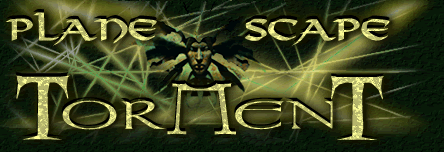
"You wake up in a mortuary and find out that your mind has been wiped clean of any memory you previously had.
[It's very Zelazny (if you don't know who Zelazny is, read the Amber Chronicles for amnesiac fiction at its best)].
You also meet a friendly talking skull who proves to be a valuable party member. You later find out that you're immortal and thus begin your epic quest to self-discovery and find out whether immortality is a gift or a curse. This game is one of the very few that doesn't have a clichéd (i.e. save the world and kill bad guy) storyline. Throughout the game you'll meet strange party members, interact with creatures from other universes, gain new skills, and also learn about your past and that of your companions.
---Toma (RPG Reactor)
How Is It Different?
Planescape is a lot about beliefs. There are the obvious beliefs, such as the general trend of your behavior (alignment), and the not-so-obvious effects of belief which shapes reality in Planescape.
Planescape gives players free access to all the Planes through the city of Sigil.
Sigil is a city of doors. These doors may lead anywhere but are invisible and inaccessible until opened with a key. This key can be anything - a real key, another object, a thought, the lack of thought - whatever. Of course, doors work both ways. So if a door leads to somewhere on Krynn in the Dragonlance setting, then some poor fool might accidentally set it off and find himself in this overwhelming city. These are the 'Clueless', and it usually takes them quite a while before they realize where they are.
Beings of all sorts reside and visit there. Anything from a typical human to a Power may be encountered. Some only show up to find someone or something then leave. Others decide to make their homes in the city (or one of the outlying towns, which generally border planes closest to their alignment), while others still just stumbled into Sigil and don't know where they are... Ruling over Sigil is the Lady of Pain. A near mythical figure---she is not quite a god yet far more than merely mortal---mysterious, with unknown motivations and purpose, she just is...
The worlds of the Prime do tend to contain key characteristics that identify them as part of the plane. Their inhabitants tend to be mortal and ignorant of the existence of other worlds, nevermind the other Planes. The Powers compete for the worship of the Primes, while some of the demons have only one joy in their existence - tormenting the people of the Prime Material Plane.
---Jakub Wojnarowicz (Firingsquad.com)
My favourite part of Torment, however, is the sheer amount of text in the game. Everyone has something interesting to say, and you'll find yourself looking for NPCs just to chatter endlessly with them. Torment is much less combat heavy than most RPGs, and you'll find that you can talk your way out of a fight many, many times, and often get a lot more experience while you're at it. This is a really novel approach to role playing, rewarding the good thinkers more than any other game before it, and I enjoyed it thoroughly...
Oh, and the characters that join your party are great. From Morte the floating skull to the puritan succubi to more that I won't name for fear of ruining the plot, Torment's characters are some of the most memorable in any computer RPG.
----Sunfall to-Ennien, GameVortex Communications
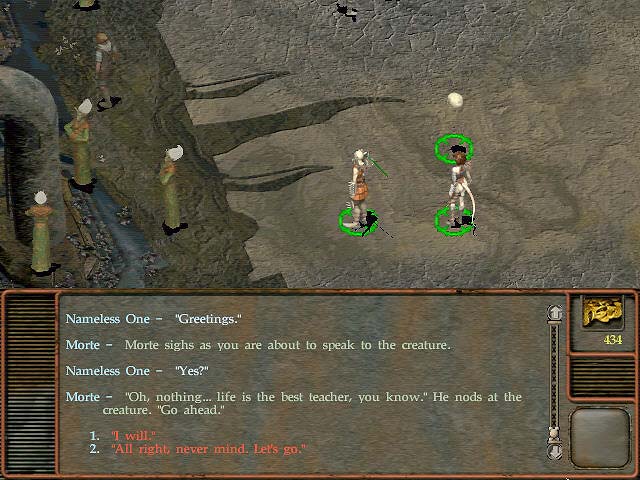
The dialogue is actually one of the best parts of Torment, since it's one of the few role-playing games to ever make good on the promise of letting you play your character however you prefer. Torment's dialogue often lets you choose to make promises, bluff, or play dumb; the game lets you perceive small details if your character is intelligent, understand philosophical implications if he's wise, and intimidate or charm if he's strong or charismatic. Your character's moral alignment and his affiliation with Sigil's different factions are openly flexible and have a noticeable impact on the course of the game. Similarly, your character can readily switch between fighter, thief, and magic-user classes and can rapidly advance to a high level of proficiency in any and all of these, which is justified within the game as not so much an acquiring of new skills as a remembrance of latent centuries-old talents.
---Greg Kasavin (GameSpot)
The Factions
(Sorcerers.net)
Every faction has its own way of seeing the multiverse and has its own powers to match. Some of them get along, others don't, and some could care less about the rest of the multiverse.
The Athar/Defiers/The Lost

According to these folks, the great and feared powers are liars! Those who claim to be the "gods" of the planes are mortals just like us. Yeah, they're unbelievably powerful, but they're not gods. After all, they can die, they've got to keep their followers happy, and they often feud among themselves like children. Thor, Zeus, and the others - they're impostors.
Sure, there might be a true god, or maybe even more than one, but such power is beyond all understanding. Such beings cannot be seen, spoken to, or understood by mortals.
'Course, the Athar ain't stupid. "Let the powers call themselves gods," they say. "It ain't worth the laugh, because there's no point upsetting the powers." With all that might, an angry power'd be a dangerous enemy. All the Athar want is to part the veil, discover the secret behind everything, and look on the face of the unknowable.
The Bleak Cabal/Madmen
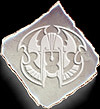
"There's no meaning to it all," say the members of this faction, "so just give it up, poor sod. Whoever said reality had to make sense?" To these folks, the multiverse ain't even a cruel joke, because that would give it all meaning. Look at all those fools in their factions, running around, trying to discover the meaning of something that's senseless. They'll waste their lives at it. And they call the Bleak Cabal mad - hah!
Here's the Bleaker credo: "The multiverse doesn't make sense, and it ain't supposed to." That's all there is to it, pure and simple. It ain't "The mutiverse is without meaning," because that answer's a meaning in itself.
For someone to join the Cabal, he or she (or it) has got to do three things: quit looking for meanings, accept what happens, and look inward. There's no meaning on the outside, so the question is, "Is there any meaning inside?"
The Believers of the Source/Godsmen

To these characters, all things are godly. All things can ascend to greater glory - if not in this life, then in the next. Patience, that's all it takes. See, here's the chant: Everything - primes, planars, petitioners, proxies, the whole lot - is being tested. Survive, succeed, and ascend - that's the goal of all beings. Fail and get reincarnated to try again. It's pretty simple and straightforward.
'Course, it ain't that easy either. First off, nobody really knows what the tests are. Is a body supposed to be good, evil, or what? Godsmen are trying to figure that out. Second, a fellow might go in reverse - mess up and come back as a prime or something worse in the next life.
So you see, the Godsmen calculate that's the whole purpose of multiverse. The Prime Material, the Inner, and the Outer Planes - they exist to test and purge. It's just a matter of figuring what's being tested and how. When that happens, the Godsmen can hasten the end of the universe and get on with some new existence.
The Doomguard/Sinkers

Ever hear of entropy, berk? Take a look around: Everything's going down the tubes, falling apart, stopping. People die, rocks erode, stars fade, planes melt away. That's entropy, the fate of the multiverse. A lot of folks think that's a terrible thing, but not the Doomguard. They're pretty sure that nothing lasts forever. It's the way things are supposed to be, they guess - the goal of everything.
Now, the sods who try to fix things - stop the decay and put everything back together - they've got it all wrong. They're fighting the natural goal of the multiverse, trying to do something unnatural. That ain't right.
Don't get this faction wrong. It's not like somebody builds a house and they tear it down. That building's part of the whole decay: The stonecutter chips the rock, the logger cuts the tree, and later the termites chew the beams until the whole case comes down on its own. There's a long view to this. The sod who can't see the grand scheme'll go barmy trying to tear down everything that gets built.
The Dustmen/The Dead
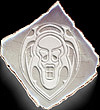
These guys say Life's a joke, a great trick. Nobody's alive; in fact, there's no such thing as Life. Sure, the petitioners are dead compared to the rest of us, but everybody else is dead too - they just don't know it yet. So what's the chant? Simple: "All these worlds and all these universes are just shadows of another existence." This multiverse - this is where beings wind up after they die.
Look, if things were truly alive, would there be such pain and misery in the multiverse? 'Course not! Life is supposed to be about celebration and positive feelings. Existence here is muted, dull, full of pain, and twisted with sorrow. What kind of celebration is that? This existence is a mockery of true life.
The berk who gets restless and rushes things dies a fool, and he'll probably be forced to go through the whole thing all over again - that's a real waste of time! Here's the chant: Respect Death, and don't ever treat it like a servant.
The Fated/Takers/Heartless/Coldbloods
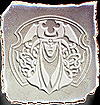
This faction says the universe belongs to those who can hold it. Each sod makes his own fate, and there's no one else to blame for it. Those who whine about their luck are just weaklings; if they were meant to succeed, they could have. Here's the way the multiverse works, according to the Takers: Everybody's got the potential to be great, but that don't mean it's going to happen. Those that work hard get what they deserve.
There's no point feeling sorry for the berks who didn't make good - it was their own fault for being weak. Some softhearted folks call this a cruel philosophy. Well, that's just an excuse for weakness. Sure, there's compassion, but a body's still got to earn it.
Most folks think there's nothing to the Fated but taking, but the Takers'll tell a berk there's a lot more than that. There's lots of things a being has to earn - respect, for instance. That's something the Fated believe can't be taken by force.
Fraternity of Order/Guvners

These folks are sure that everything's got laws. Mankind's got laws. Sigil's got laws. Even the Lower Planes got their laws. Now, once a body's got the laws down, he does pretty well, right? He knows how to use them to his advantage, and how to break them without getting caught.
If everything's got laws, then there are laws for the whole birdcage - the planes and all that. And if everything's got laws, then those laws can be learned. See where this is going? Learn the laws of the planes and learn how to break 'em, how to use 'em to best advantage. Get to be a real blood, a pro, and a basher'd have real power.
So let all the other berks run around, looking for the meaning of the multiverse. It doesn't matter what it all means, because that won't tell a body how it all works. Knowing the operation of things - that's what's important. Who cares what it means when a blood can make it do what he wants?
The Free League/Indeps

This ain't no faction and nobody tells them what to do. The idea that any berk knows the truth and everybody else's wrong - well, that's a chance a body shouldn't take. Who's right - the Guvners? The Mercykillers? The Chaosmen? Since when does a smart gambler play all his jink on a single throw?
Still, a body's got to belong to something if he wants to stay alive. The Free League's kind of an informal group of like-thinkers. They share news, pass around jobs, and watch each other's backs. Hey, in a place like the planes, a body can't be too careful.
Some figure Indeps to be cowards, afraid to play a stake on the truth, but Indeps see themselves as free thinkers, refusing to be shackled to some blind ideology. Truth is, there are some that don't want to make the choice, for fear of offending one power or another. Then again, there's plenty of folks seeking to make their own truth - maybe even start themselves a new faction.
The Harmonium/Hardheads

The secret of the multiverse? That's simple, and every cutter in the Harmonium knows what it is: "The Harmonium is always right." Look, the goal of every enlightened being in the multiverse is to live in perfect harmony with all others. Look around: Peace or war - those are the only true states of the multiverse.
The Harmonium says there's only one way to have peace: their way. War or peace - squabble among each other or join the Harmonium - those are the only choices. The Harmonium believes that the ultimate goal of the multiverse is universal harmony, and it's ready to spread that belief to all those other sods out on the planes. If that takes thumping heads to spread the truth, well, the Harmonium's ready to thump heads.
Sure, there might not be peace right away, but every time the Harmonium gets rid of an enemy, the multiverse is that much closer to the universal harmony it was meant to have.
The Mercykillers/Red Death
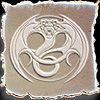
As far as this faction's concerned, justice is everything, and there ain't no sod who can give it the laugh. Those cutters that try'll have the Mercykillers on their tail, so the smart thing is just don't try. It's the whole reason laws exist - to see that justice is carried out.
Justice purges the evil in folks and makes them better, fit to belong in the multiverse. Once everybody's been cleansed, then the multiverse reaches perfection, and perfection's the goal of the multiverse.
'Course now, other folks don't agree with Mercykiller logic. To them, the Mercykillers ain't above the laws or even right in what they do. The Mercykillers don't like such folk's attitudes, but they can't hang a being for its opinions - at least not in most places. See, the Mercykillers say they don't make the laws, they only enforce them. All in all, they're no better than the rest, but no worse than a few.
The Revolutionary League/Anarchists
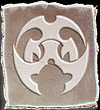
"These universes, these powers, they're all corrupt!" screams this faction. "They're guiding people in the wrong directions, keeping them as slaves and prisoners to the powerful. The old beliefs are lies." These sods claim that the Guvners, Chaosmen, Mercykillers, Athar - every last one of them - no longer care about the truth. Their factols have all the property, bodyguards, jink, and influence. They're not looking for the truth; they just want to hang on to what they've got.
Well, the Anarchists say it's time for that to change. It's time to break free of the chains and seek the real truth. And that's only going to happen when a body's free of the bonds of the other factions. A being's got to be able to make his own choices, but would any faction just let a body go? Think the Harmonium would say, "Sure, we admit we're wrong. Go find your own way." Not a chance!
Once the factions come down, then folks can find the real truth. Break it all and rebuild with the pieces that are left - that's the only plan.
The Sign of One/Signers

Every person, every individual, is unique. This is the greatest glory of the universe - that each creature living (and dead) is different from all others. It's obvious, then, that the multiverse centers around the self, or so this faction would have everyone believe. "It's quite simple, addle-cove," one of these sods would say. "The world exists because the mind imagines it. Without the self, the multiverse ceases to be." Therefore, each Signer is the most important person in the multiverse. Without at least one Signer to imagine it all, the rest of the factions would cease to exist.
Better be nice to the Signers then, berk, because they just might decide to imagine a body right out of existence. Don't think it can be done? Maybe not, but then a basher's a fool to take the risk. Lots of folks disappear without a trace, and more than a few are enemies of the Signers. Makes a body think, don't it?
The Society of Sensation/Sensates
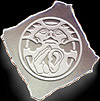
According to these folks, the multiverse is known by the senses - the only proofs of existence. Without experience, without sensation, a thing isn't. If a sod can't taste the soup, then it ain't soup. The only way to know anything for sure is to use the senses.
Look, it ain't that hard to understand. Which is real, a description of the rose or the rose itself? Only a barmy'd choose the description, which ain't real. It's got no smell, no thorns, no color. Picking a rose, that's real, and the way a body knows is by experiencing it. The senses are the only way to know the universe.
Given that, the multiverse has limits, and a body can try to experience it all. A being's got to savor the intensity, explore the complexity. Don't just guzzle the wine - find all the flavors within it. Before a sod's all done, he'll learn the difference between Arborean and Ysgardian wine, know them by vintage, and even by the hand of the vinter. Only then do the secrets of the multiverse start to make themselves clear.
The Transcendent Order/Ciphers
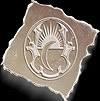
These guys say that for a body to become one with the multiverse, he's got to stop thinking and act. Action without thought is the purest form of thought. When a cutter can know what to do without even thinking about it, then he's become one with the multiverse.
It goes like this. Every berk's part of the multiverse, and nothing's apart from it. So it figures that every being knows the right action to take at just the right moment. Problem is, some folks start thinking and mess it all up. Thinking adds hesitation and doubt. It overrules instinct and separates a sod from the multiverse. By the time a poor sod's thought about something, the right action for the right moment is gone.
So what's all this get a fellow, then? Once mind and body are in harmony, the spirit becomes in tune with the multiverse. A blood understands the purpose of multiverse and knows just where and how he should be.
The Xaositects/Chaosmen

As these sods see it, the multiverse wasn't born from Chaos - the multiverse is Chaos. There's no order, no pattern to anything. That's the meaning of the multiverse, the great secret everyone else is just too dull-witted and cowardly to admit! Look around. Is there any pattern to this existence? Any order that gives it all meaning? None, not a one.
So why fight it, since Chaos is how things are meant to be? It has a beauty and wonder all its own. By gazing upon Chaos, learning to appreciate the randomness of it and understanding its sublime intricacies, the Xaositects learn the secrets of the multiverse. They want to play within the unshapeable Chaos, and to be a part of its uncontrollable energies.
So how's Planescape different from other AD&D game worlds?
Planescape's one of the game worlds designed to appeal to the more mature gamer. While 'normal' AD&D is set in a mediaeval world where magic and dragons really do exist, Planescape's set in higher (and lower) Planes of Existence.
On the Outer Planes, belief is power, and the infinite planes reflect this. Each plane has its own ethos, ranging from the purest of good to the foulest of evil, with law and chaos in between. On these planes of belief dwell the most wondrous beings, made of the collective hopes and dreams of billions of mortals, but also the most terrible creatures, crystallised from the dark vices and desires of the same mortals.
While a 'normal' D&D game deals with saving princesses and battling terrible dragons, a Planescape game explores belief, philosophy and the nature of good and evil. Well, if you like that sort of thing.
---mimir.net
Who is the Lady of Pain?
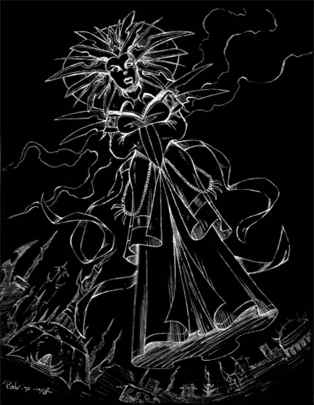
She's a power.
She ain't a power, she's just a tanar'ri.
She's not a tanar'ri or a power, she's something else. Chant variously claims she is a reformed baatezu or a yugoloth...maybe one who's turned stag, or maybe a spy for the fiends.
The Lady ain't a tanar'ri, yugoloth, or baatezu, but a fallen aasimon (archon, eladrin...) who lost the favour of the powers of Good and was twisted by the corruptions of the Lower Planes.
There's more than one Lady of Pain. Nobody knows where they go when they're not busy flaying people's skin. They all look the same, of course, so nobody's ever supposed they're different. They are very different in personality, which is why the Lady seems to act so unpredictably.
The Lady (or Ladies) of Pain are female Dabus, or perhaps the Queen of the Dabus. This is why she (or they) do not walk or speak.
She is but one being who created the Dabus in her image. She is not female, nor are the Dabus male; they have no gender. They are her slaves, and she their mistress.
The Lady is a product of the dreams of the Dabus; a solid image formed from their rebus-speak.
The Lady was hatched from an egg of Io the Dragon Power in Sulfanorum in the Abyss.
The Lady is a Power-to-be, much like the barmies of Harbinger House. The Godsmen have tried to trap her many times, but she always places them in mazes.
The factols secretly report to her, and steer their factions based on what she tells them. They're all her proxies, after all.
She uses successful Planewalkers as proxies turning them into living keys!
The Lady is a clinging power. She has become one with Sigil and has lost much of her sanity (and personal power) in the process.
The Lady has lovers who while divine, are driven to suicide by her "tender ministrations". She uses portals and traps to lure them into Sigil, and her embrace, while she bars unworthy lovers from the Cage.
The Lady is insane or sad because she can't find a lover powerful enough to survive her blades.
She's an "Over Power" like Ao, with a greater level of interest in things than he has.
The Lady uses the Planewalkers to help her find a way to leave Sigil, or to keep the powers out.
The Lady that people see is a mind-rendering of the dabus, who resent the trespassers in "their" city...her powers are minor and created with magical items nearby.
The Lady's image is a mass hallucination carefully created with the use of ethereal swimmers and talented mindbenders...proxies and powers know the dark of it, but do nothing.
The real Lady is insane and is kept in magical restraint in Sigil...the one who appears at random floating above the streets is an impostor.
The Lady grants no spells because she is a Power who is Powerless. If enough barmies worshipped her at once, she would break free and destroy Sigil.
The Lady of Pain was Harys Hatchis' biggest ever publicity stunt, to draw tourists from all over the planes to see Sigil.
You want the Dark on the Lady of Pain? Get real! There ain't no dark, least, none that anyone alive or dead ever knew. Might as well make up your own, for the good it'd do you.
So what's the truth, then? Well, with most things in the Planes, the Truth is whatever you believe it to be. Simple as that.
Believe well, cutter.
If you're curious about the poem which may have inspired the central, mysterious figure in Planescape you might like to read this story by Algernon Charles Swinburne: Dolores.
|
|
 31 Mar 2004 @ 19:14, by ida
31 Mar 2004 @ 19:14, by ida
















